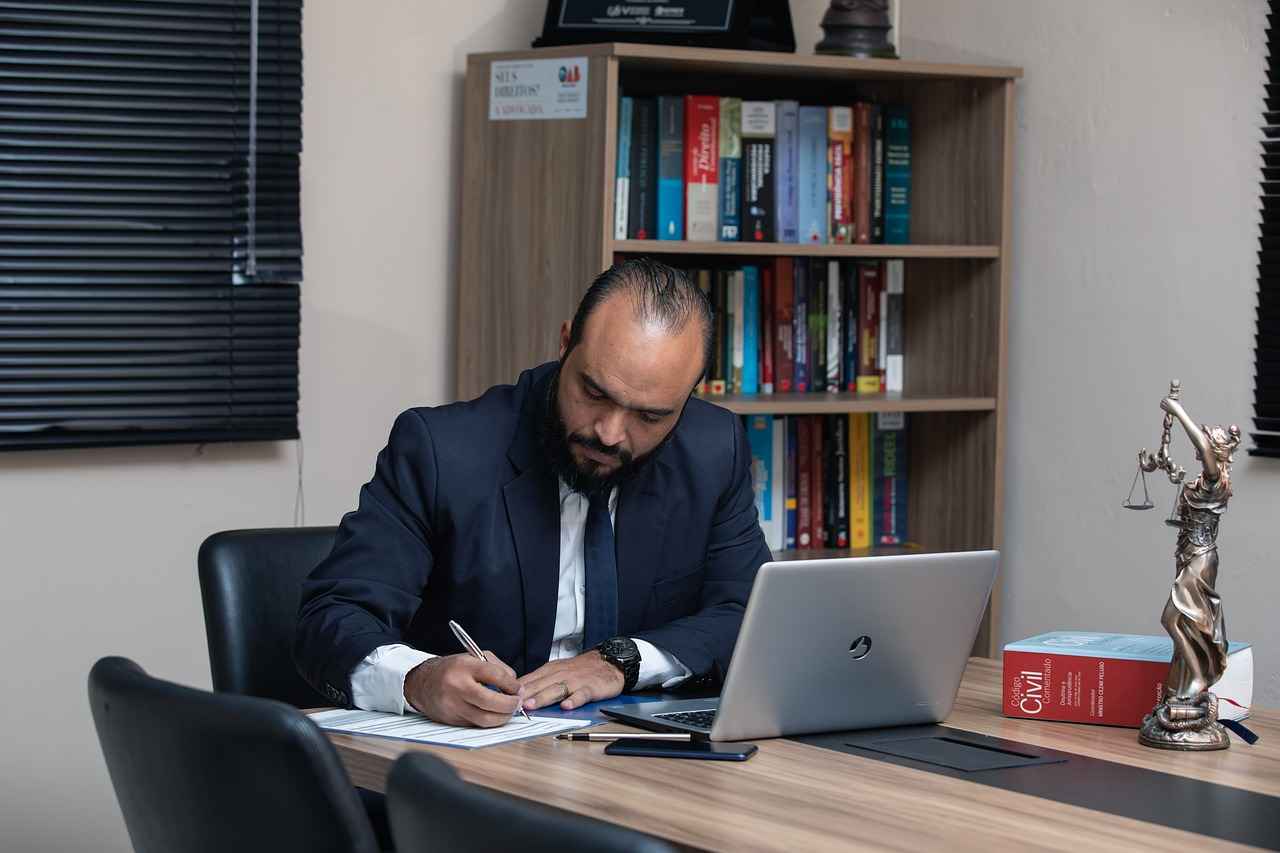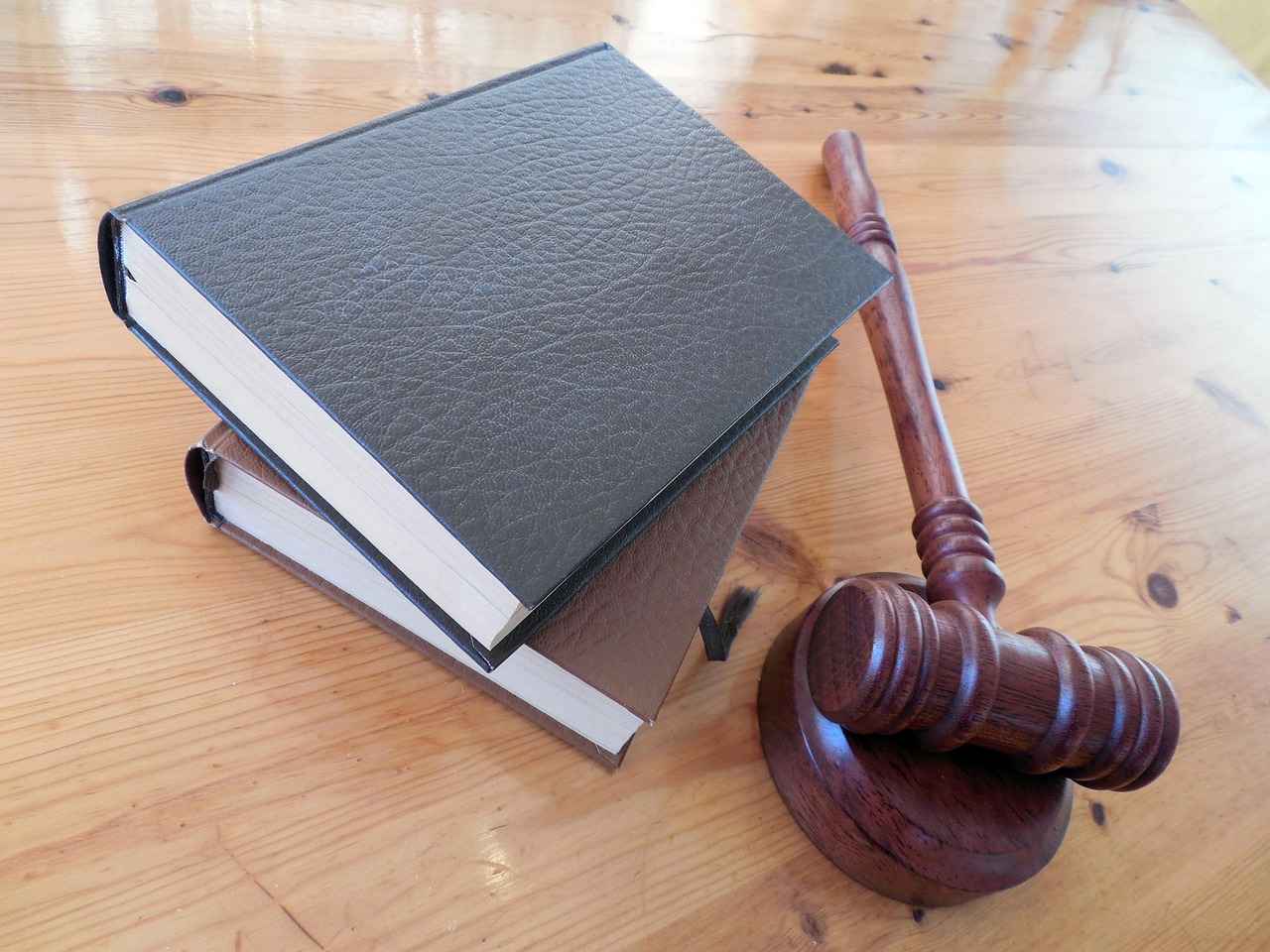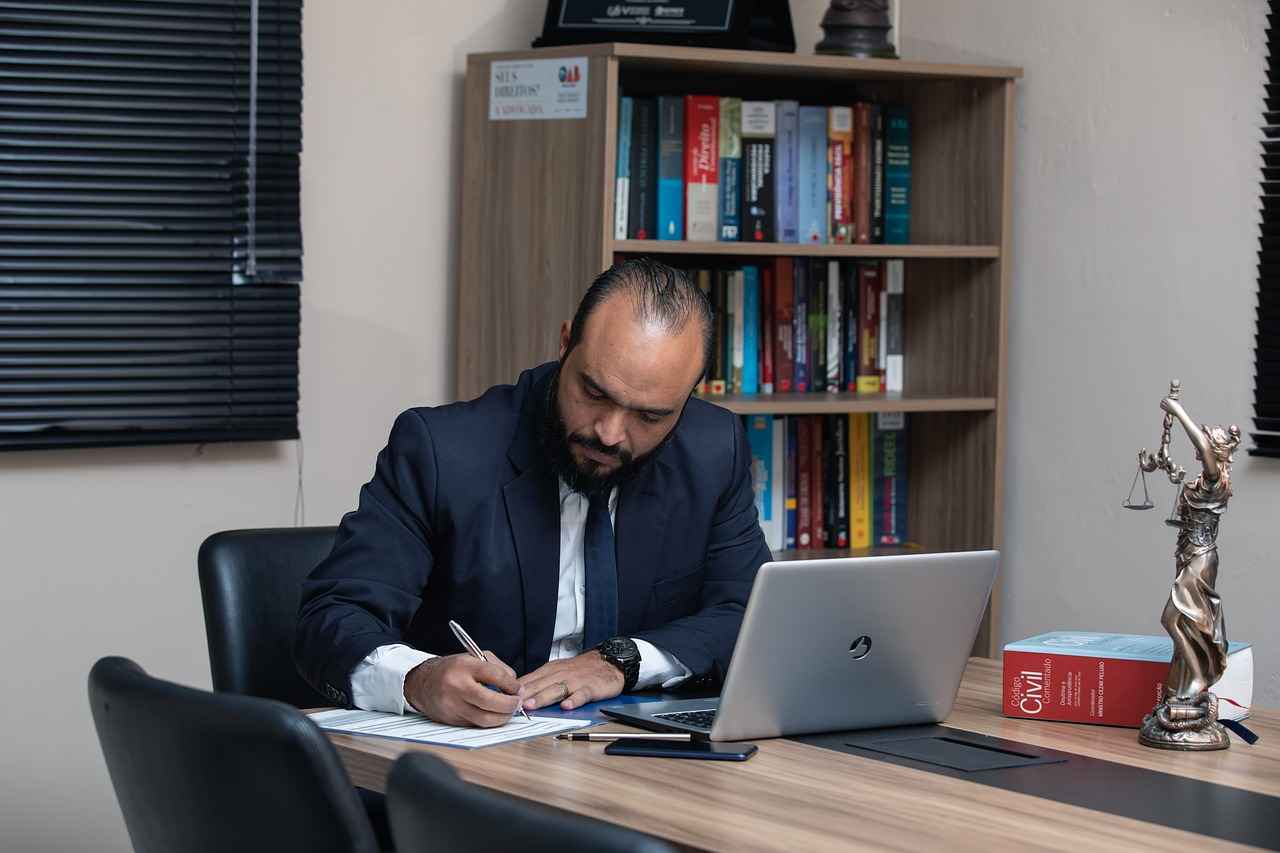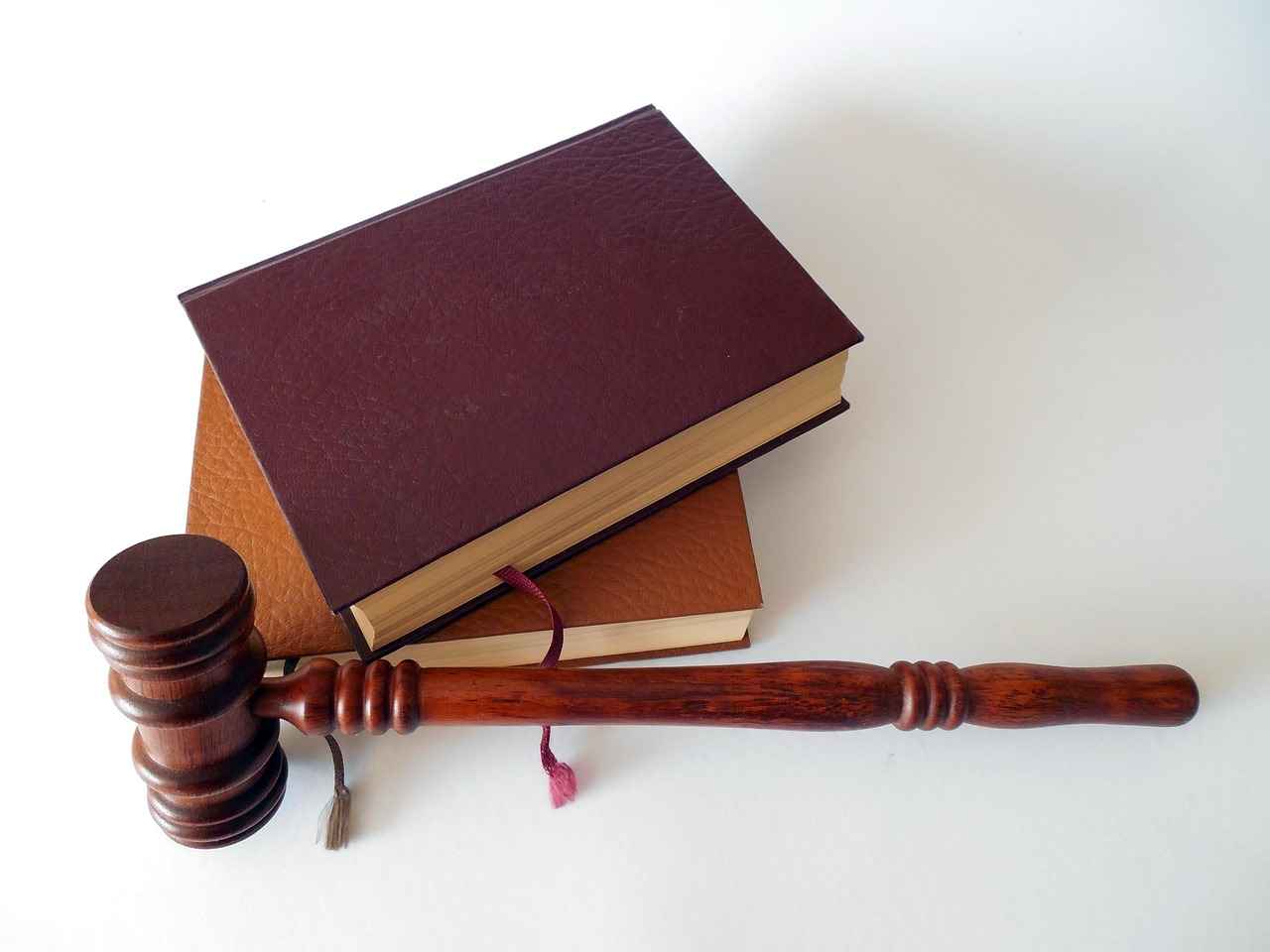This article explores the most common types of legal cases in the U.S. and provides expert insights on finding qualified attorneys in a bustling city like San Francisco. Navigating the legal landscape can be daunting, especially in a metropolis where the options are plentiful yet complex. Below, we delve into various legal case types and offer guidance on securing the best legal representation.
Personal Injury Cases
Personal injury cases are among the most frequent legal issues in the U.S., arising from accidents that result in physical or emotional harm due to another party’s negligence. To find a skilled personal injury lawyer, consider using platforms like Avvo or FindLaw. Look for attorneys with a proven track record in similar cases, and ensure they have the necessary credentials, such as board certifications in personal injury law. Red flags include lawyers who promise guaranteed outcomes or those who lack significant experience in trial settings.
Medical Malpractice Claims
Medical malpractice occurs when healthcare providers fail to meet the standard of care, leading to patient harm. Finding an attorney who specializes in medical malpractice is essential. Seek out lawyers who have experience with medical experts and a history of successful settlements. Utilize resources like Super Lawyers to identify top-rated attorneys. Be cautious of those who lack transparency about their fees or who seem unfamiliar with medical procedures relevant to your case.
Breach of Contract Disputes
Breach of contract cases arise when one party fails to fulfill their contractual obligations. To navigate these disputes effectively, look for attorneys with expertise in contract law. Platforms such as Lawyers.com can help you find qualified professionals. Prioritize lawyers who offer free consultations and have a good understanding of your specific industry. Avoid those who seem disinterested in the details of your case or who rush through initial meetings.
Property Disputes
Property disputes can involve boundary issues, title defects, or landlord-tenant conflicts. An attorney knowledgeable in real estate law can provide the necessary guidance. Check local bar associations for referrals and look for lawyers who have experience in property litigation. Red flags include attorneys who lack local knowledge or who have poor reviews regarding their communication skills.
Landlord-Tenant Disputes
These disputes often arise from lease violations or eviction processes. A lawyer familiar with housing laws can protect your rights effectively. Resources like Nolo can help you find attorneys who specialize in landlord-tenant issues. Be wary of lawyers who charge exorbitant fees without clear explanations or those who lack a solid understanding of local housing regulations.
Defamation Cases (Libel/Slander)
Defamation cases involve false statements that damage an individual’s reputation. Finding an attorney with experience in media law can be crucial. Look for lawyers who have successfully handled similar cases and are familiar with the First Amendment implications. Avoid those who make unrealistic promises about the outcome or who do not have a clear strategy for your case.
Employment Disputes
Employment disputes, including wrongful termination and discrimination claims, require specialized legal expertise. Seek attorneys with a strong background in employment law, and consider platforms like EEOC for guidance. Be cautious of lawyers who do not take the time to understand your situation fully or who lack experience in employment-related cases.
Product Liability Cases
When defective products cause harm, product liability cases arise. Finding a lawyer who specializes in consumer protection laws is essential. Utilize resources like Consumer Reports to identify qualified attorneys. Red flags include those who lack experience with similar products or who do not have a strong network of expert witnesses.
Wrongful Death Claims
Wrongful death claims seek compensation for families who have lost loved ones due to negligence. A compassionate attorney can guide you through the emotional and legal complexities involved. Look for lawyers with experience in wrongful death cases and a history of successful settlements. Be wary of those who seem more focused on financial gain than on supporting your family’s needs.
Class Action Lawsuits
Class action lawsuits allow individuals with similar claims to band together. Finding a lawyer experienced in class actions can enhance your chances of a successful outcome. Research law firms that have successfully handled class action suits and check their track record. Avoid attorneys who lack transparency about their fees or who do not communicate clearly about the process.
Assault and Battery Cases
These cases involve intentional harm and require a knowledgeable attorney to navigate both criminal and civil aspects. Seek lawyers who have experience in personal injury and criminal defense. Red flags include those who cannot provide clear case strategies or who lack experience in similar cases.
Drug Offenses
Drug offenses can range from possession to trafficking. Understanding how to find a criminal defense attorney with experience in drug-related cases is crucial for effective representation. Look for lawyers who specialize in drug law and have a history of favorable outcomes. Be cautious of those who lack a clear understanding of local drug laws.
Theft and Burglary Cases
These cases involve accusations of stealing property. A skilled attorney can help defend against these charges and protect your rights. Seek out lawyers with experience in criminal defense and check their success rates. Avoid those who seem unprepared or who do not take your case seriously.
Fraud and Embezzlement Cases
Fraud and embezzlement cases involve financial deceit. Finding a lawyer experienced in white-collar crime is key to navigating the legal system effectively. Look for attorneys who have successfully handled similar cases and check their credentials. Be wary of those who lack transparency about their fees or who do not have a clear strategy for your case.
Murder and Homicide Cases
These are the most serious criminal charges, and a defense attorney with experience in these cases can provide critical support. Seek lawyers who have a strong background in criminal defense and a history of successful outcomes. Red flags include attorneys who lack trial experience or who do not seem committed to your case.
DUI/DWI Cases
Driving under the influence cases require specialized legal knowledge. Identifying a lawyer who specializes in DUI defense can significantly affect the outcome of your case. Look for attorneys with a strong track record in DUI cases and those who are familiar with local laws. Be cautious of those who do not offer personalized attention or who seem overly focused on fees.
Domestic Violence Cases
These cases involve allegations of abuse within a domestic setting. A knowledgeable attorney can help victims navigate legal protections and support systems. Seek out lawyers who have experience in domestic violence cases and who are sensitive to the complexities involved. Avoid attorneys who lack empathy or who do not take the time to understand your situation.
Sexual Offenses
Cases involving sexual offenses require specialized legal expertise. Finding a lawyer who understands the sensitive nature of these cases is crucial. Look for attorneys with experience in sexual offense cases and a history of favorable results. Red flags include those who lack familiarity with the nuances of sexual offense laws.
Cybercrime
As technology evolves, so do the crimes associated with it. Finding a lawyer who specializes in cybercrime is essential for effective representation. Seek attorneys who are well-versed in digital laws and have experience in similar cases. Be cautious of those who lack a clear understanding of the technology involved.
White Collar Crime
White collar crimes involve non-violent financial offenses. Finding an attorney with experience in this area is crucial for navigating the complexities of financial regulations. Look for lawyers who specialize in white collar crime and who have a track record of successful outcomes. Avoid those who lack transparency about their fees or who do not seem knowledgeable about the legal landscape.
Divorce, Child Custody, and Support Cases
Family law cases can be emotionally charged and complex. Finding an attorney who specializes in family law is essential. Seek out lawyers who have experience in divorce, child custody, and support cases. Be cautious of those who seem unprepared or who do not prioritize your family’s needs.
Adoption and Paternity Cases
These cases require specialized legal knowledge. Look for attorneys who have experience in adoption and paternity issues. Utilize resources like local family law associations to find qualified professionals. Red flags include those who lack experience or who do not take the time to understand your unique situation.
Guardianship and Immigration Cases
Guardianship and immigration cases can be complex and require specialized legal expertise. Seek attorneys who have experience in these areas and who are familiar with local laws. Be cautious of those who lack transparency about their fees or who do not prioritize your needs.
Bankruptcy Cases
Bankruptcy cases require specialized legal knowledge to navigate the complexities of financial law. Look for attorneys who specialize in bankruptcy and have a history of successful outcomes. Avoid those who lack experience or who do not seem committed to your case.
Patent and Trademark Disputes
Intellectual property disputes require specialized legal expertise. Finding an attorney who understands patent and trademark law is essential for protecting your rights. Seek lawyers with experience in intellectual property cases and a strong track record. Be wary of those who lack familiarity with the intricacies of intellectual property law.
Federal Tax Disputes
Tax disputes can be complex and require specialized knowledge. Finding a lawyer who specializes in tax law is crucial for effective representation. Look for attorneys with experience in federal tax disputes and a history of favorable outcomes. Avoid those who lack transparency about their fees or who do not seem knowledgeable about tax laws.
Civil Rights Violations
Civil rights cases require specialized legal expertise. Finding an attorney who understands civil rights law is essential for effective representation. Seek lawyers with experience in civil rights cases and a history of successful outcomes. Be cautious of those who lack familiarity with civil rights issues.
Interstate or International Crimes
These cases require specialized legal knowledge and experience. Finding a lawyer who understands the complexities of interstate or international law is crucial. Look for attorneys with experience in these cases and a history of favorable outcomes. Avoid those who lack transparency or who do not prioritize your case.

Personal Injury Cases
Personal injury cases are among the most common types of legal disputes in the United States, often arising from incidents where individuals seek compensation for injuries sustained due to another party’s negligence. These cases can encompass a wide range of situations, including car accidents, slip and fall incidents, and workplace injuries. Understanding the intricacies of personal injury law is essential for anyone looking to file a claim successfully.
When seeking a personal injury lawyer, it is vital to consider their experience and specialization in personal injury law. Look for attorneys who have a proven track record of handling cases similar to yours. Many lawyers offer free consultations, which can be an excellent opportunity to gauge their expertise and approach to your case.
Here are some practical steps to find a skilled personal injury lawyer:
- Research Online: Utilize legal directories and review platforms such as Avvo, Martindale-Hubbell, and Google Reviews to find top-rated personal injury attorneys in your area.
- Check Credentials: Verify the attorney’s qualifications, including their education, bar association membership, and any special certifications in personal injury law.
- Assess Experience: Inquire about the lawyer’s experience with cases similar to yours, including their success rate and familiarity with local courts.
- Ask for Referrals: Seek recommendations from friends, family, or colleagues who have previously worked with personal injury attorneys.
- Initial Consultation: Take advantage of free consultations to ask questions about the lawyer’s approach and fees. Pay attention to their communication style and willingness to address your concerns.
Additionally, be aware of red flags when choosing a personal injury lawyer. Avoid attorneys who guarantee specific outcomes, as no lawyer can predict the result of a case. Be cautious of those who pressure you into signing a contract or who lack transparency about their fees and processes.
In summary, finding a qualified personal injury lawyer is crucial for navigating the complexities of your case and maximizing your chances of receiving fair compensation. By conducting thorough research and asking the right questions, you can ensure that you select a legal professional who will advocate effectively on your behalf.

Medical Malpractice Claims
represent a significant area of concern within the healthcare system. These claims arise when healthcare professionals, such as doctors, nurses, or hospitals, fail to provide the standard of care expected in their profession, leading to harm or injury to patients. Navigating the complexities of medical malpractice requires not only a thorough understanding of medical practices but also legal expertise. Thus, finding a qualified attorney with specific experience in medical malpractice is essential for achieving a favorable outcome.
When considering a medical malpractice case, it is crucial to understand the various elements involved. A successful claim typically hinges on proving that the healthcare provider deviated from the accepted standard of care, which directly resulted in injury or harm. This can include misdiagnosis, surgical errors, improper treatment, or failure to obtain informed consent. The intricacies of these cases often necessitate the involvement of expert witnesses who can testify about the standard practices within the medical community.
To find the best attorney for your medical malpractice claim, start by seeking recommendations from trusted sources, such as friends, family, or healthcare professionals. Additionally, online platforms like Avvo or FindLaw provide valuable resources for researching potential attorneys. Look for lawyers who specialize in medical malpractice and have a proven track record of successful cases. Check their credentials, including education, years of experience, and any relevant certifications.
During your initial consultation, which many attorneys offer for free, assess their communication style and willingness to listen. A competent attorney should be able to explain complex legal concepts in a way that is easy to understand. Ask about their experience with similar cases and the outcomes they achieved. It is also wise to inquire about their fee structure, as many medical malpractice attorneys work on a contingency basis, meaning they only get paid if you win your case.
Be cautious of red flags when selecting an attorney. Avoid lawyers who guarantee specific outcomes or seem overly eager to take your case without a thorough evaluation. A reputable attorney will conduct a comprehensive assessment of your case before making any commitments. Furthermore, ensure that the attorney is in good standing with the state bar association, as disciplinary actions can indicate a lack of professionalism.
In summary, medical malpractice claims are complex and require the expertise of a qualified attorney. By conducting thorough research, seeking recommendations, and asking the right questions, you can find an attorney who will advocate for your rights and help you navigate the legal process effectively.

Breach of Contract Disputes
are a common occurrence in the legal landscape, particularly in business and personal transactions. These disputes arise when one party fails to fulfill their contractual obligations, leading to potential financial and legal repercussions for the aggrieved party. Understanding the intricacies of breach of contract cases is vital for anyone entering into a binding agreement.
When faced with a breach of contract, it is essential to first assess the situation. Determine whether the breach is material or minor, as this distinction can significantly impact the remedies available. A material breach occurs when the failure to perform is significant enough to undermine the contract’s purpose, while a minor breach may only result in a slight deviation from the terms. Knowing this can help in deciding whether to pursue legal action or seek an amicable resolution.
Consulting with a knowledgeable attorney who specializes in contract law is crucial. An experienced lawyer can help you understand your rights and options in these disputes. They will assess the contract’s language and the circumstances surrounding the breach to determine the best course of action. Look for attorneys who have a proven track record in handling breach of contract cases, as their expertise will be invaluable in navigating the complexities of the law.
When searching for a qualified attorney in major cities like San Francisco, New York City, or Los Angeles, consider the following methods:
- Referrals: Seek recommendations from friends, family, or professional networks. Personal experiences can lead you to trustworthy attorneys.
- Online Directories: Utilize legal directories such as Avvo, FindLaw, or Martindale-Hubbell to search for attorneys based on their specialties and client reviews.
- Consultation Meetings: Schedule initial consultations with potential lawyers. This will allow you to gauge their understanding of your situation and their approach to handling your case.
While searching for an attorney, pay attention to their credentials. Look for lawyers who have specialized training in contract law and relevant experience in handling breach of contract disputes. Additionally, verify their standing with the state bar association to ensure they are licensed and in good standing to practice law.
It is equally important to be aware of red flags when hiring a legal professional. Avoid attorneys who make unrealistic promises about outcomes or those who do not provide clear explanations of their fees and billing practices. Transparency is key in establishing a trusting attorney-client relationship.
In conclusion, breach of contract disputes can be complex and challenging. However, with the right legal guidance, you can navigate these issues effectively. By understanding your rights, seeking qualified legal representation, and being aware of potential pitfalls, you can protect your interests and work towards a favorable resolution.

Property Disputes
Property disputes can arise from a variety of issues, including boundary disputes, title issues, and zoning conflicts. These disputes can be particularly complex, often involving multiple parties and intricate legal principles. For individuals facing such disputes, it is essential to engage an attorney who specializes in real estate law to navigate the challenges effectively.
Boundary disputes typically occur when property lines are unclear or contested. This can happen due to misplaced fences, inaccurate surveys, or even long-standing neighborly misunderstandings. To resolve these conflicts, an experienced attorney can help gather evidence, such as property deeds and survey maps, to establish a clear boundary. They can also facilitate negotiations between parties to reach a settlement without resorting to litigation.
Title issues, on the other hand, arise when there are questions about the ownership of a property. This could include liens, easements, or disputes over inheritance. A qualified real estate attorney can conduct a thorough title search to identify any potential issues and guide you through the process of clearing the title, ensuring that your ownership is legally recognized and protected.
In metropolitan areas such as New York City, Los Angeles, or Chicago, finding the right attorney involves several considerations:
- Experience: Look for lawyers with a proven track record in handling property disputes similar to yours.
- Credentials: Check for memberships in professional organizations, such as the American Bar Association or local real estate law associations.
- Reviews: Online platforms like Avvo and Yelp provide client reviews and ratings that can help gauge an attorney’s reputation.
- Consultation: Many attorneys offer free initial consultations. Use this opportunity to assess their understanding of your case and their proposed strategies.
When hiring a real estate attorney, be wary of red flags such as:
- A lack of clear communication or difficulty in reaching the attorney.
- Pressure to make quick decisions without fully understanding your options.
- Unwillingness to provide references or client testimonials.
Ultimately, having the right legal representation can make a significant difference in the outcome of property disputes. An attorney who is well-versed in local laws and regulations will not only advocate for your rights but also help you navigate the often-complex legal landscape surrounding real estate.

Landlord-Tenant Disputes
Landlord-tenant disputes are a common issue that arises from lease agreement violations. These disputes can stem from various issues, including late rent payments, property maintenance problems, or unauthorized alterations to the rental unit. Understanding your rights and responsibilities as either a tenant or a landlord is crucial to resolving these conflicts effectively and avoiding legal complications.
To ensure that your rights are protected, it’s essential to find a lawyer who specializes in housing laws and is familiar with the specific regulations in your state or locality. Here are some practical steps to guide you in finding the right legal representation:
- Research Local Attorneys: Start by searching for lawyers who specialize in landlord-tenant law in your area. Websites like Avvo or FindLaw can provide listings and reviews of local attorneys.
- Check Credentials: Look for attorneys with a strong background in real estate law. Ensure they are licensed to practice in your state and have experience handling cases similar to yours.
- Seek Referrals: Ask friends, family, or colleagues if they can recommend a reputable lawyer. Personal referrals can often lead to trustworthy legal representation.
- Consult Legal Aid: If you cannot afford a private attorney, consider reaching out to local legal aid organizations that provide assistance to tenants and landlords.
- Schedule Consultations: Many attorneys offer free initial consultations. Use this opportunity to discuss your situation, gauge their expertise, and understand their approach to handling cases.
When meeting with potential lawyers, be prepared to ask important questions such as:
- What is your experience with landlord-tenant disputes?
- How do you charge for your services? (hourly rate vs. flat fee)
- What is your approach to resolving disputes—mediation, negotiation, or litigation?
- Can you provide references from previous clients?
It’s also important to be aware of red flags during your search. Avoid lawyers who:
- Make unrealistic promises about the outcome of your case.
- Have numerous complaints or negative reviews from past clients.
- Are unwilling to provide clear information about their fees and billing practices.
In summary, navigating landlord-tenant disputes can be challenging, but finding a qualified attorney can significantly impact the outcome of your case. By following the steps outlined above, you can ensure that you have the right legal support to protect your interests.

Defamation Cases (Libel/Slander)
Defamation cases are critical legal matters that can significantly affect an individual’s reputation and livelihood. These cases arise from false statements made about a person that damage their reputation. Defamation is categorized into two types: libel, which refers to written statements, and slander, which pertains to spoken statements. Understanding the nuances between these two forms is essential for anyone considering legal action.
In the complex landscape of defamation law, a seasoned attorney can provide invaluable guidance. They will help you navigate the intricacies of both libel and slander laws, which can vary significantly from state to state. For instance, in some jurisdictions, public figures must prove actual malice to win a defamation case, while private individuals may only need to demonstrate negligence. This distinction underscores the importance of having a knowledgeable legal professional at your side.
When seeking an attorney for a defamation case, consider the following strategies:
- Research Specialization: Look for lawyers who specialize in defamation or media law. Their expertise will be crucial in building a strong case.
- Check Credentials: Verify their qualifications, including education and years of practice. A lawyer with a background in litigation will be particularly beneficial.
- Read Reviews: Online platforms like Avvo and Martindale-Hubbell provide client reviews and ratings that can help you gauge an attorney’s reputation.
- Consultation: Many attorneys offer free initial consultations. Use this opportunity to assess their understanding of your case and their approach to legal strategy.
Additionally, be aware of potential red flags when hiring a lawyer. Avoid attorneys who guarantee outcomes, as this is unrealistic in legal matters. Also, watch for those who have a history of disciplinary actions or complaints against them. A good attorney will be transparent about their past and will provide references upon request.
In conclusion, defamation cases can be emotionally taxing and legally complex. Engaging a qualified attorney who understands the nuances of libel and slander laws is essential. They will not only help you understand your rights but also assist you in crafting a compelling case to protect your reputation.

Employment Disputes
can significantly impact individuals’ careers and livelihoods. These disputes often encompass a range of issues, including wrongful termination, discrimination claims, and harassment claims. Navigating these complex legal waters can be daunting, making it essential to find a lawyer with specialized experience in employment law.
When searching for the right attorney, consider the following steps:
- Research and Referrals: Start by asking friends, family, or colleagues for recommendations. Online platforms like Avvo and FindLaw can also provide valuable insights and ratings for lawyers specializing in employment disputes.
- Check Credentials: Look for attorneys who are members of professional organizations such as the American Bar Association or local bar associations. Membership in these groups often indicates a commitment to staying updated on employment law.
- Experience Matters: Seek out lawyers who have a proven track record in handling employment disputes similar to yours. Schedule consultations to discuss their past cases and outcomes.
- Initial Consultation: Many lawyers offer free initial consultations. Use this opportunity to gauge their understanding of your situation and their approach to resolving disputes.
- Evaluate Communication Skills: Effective communication is crucial in legal matters. Choose an attorney who listens carefully and explains complex legal terms in a way you can understand.
- Understand Fees: Clarify the attorney’s fee structure—whether they charge hourly rates or work on a contingency basis. Be sure to discuss any additional costs that may arise during the process.
- Trust Your Instincts: Finally, trust your gut feeling. The attorney-client relationship is built on trust, so choose someone you feel comfortable with and confident in.
In addition to these steps, it’s essential to be aware of red flags that may indicate a lawyer is not the right fit:
- High Turnover: Frequent changes in staff or attorneys at a law firm may suggest disorganization or instability.
- Lack of Transparency: If an attorney is unwilling to discuss fees or provide a clear outline of their services, it could be a warning sign.
- Poor Communication: If the lawyer does not respond promptly to your inquiries during the consultation phase, this may indicate future communication issues.
- Negative Reviews: While one or two negative reviews are not uncommon, a pattern of complaints about the attorney’s professionalism or effectiveness should raise concerns.
In summary, employment disputes can be complex and emotionally draining. Finding the right attorney is crucial to advocating for your rights and achieving a favorable outcome. By following these guidelines and being aware of potential pitfalls, you can confidently navigate the process of hiring a qualified employment lawyer.

Product Liability Cases
Product liability cases are a critical aspect of consumer protection law, arising when defective products cause harm to individuals. These cases can stem from various issues, including design flaws, manufacturing defects, or inadequate warnings and instructions. When consumers are injured or suffer damages due to a product’s failure, they have the right to seek compensation from the responsible parties, typically the manufacturers or distributors.
Finding a lawyer who specializes in product liability is essential to navigate the complexities of these cases effectively. Here are some key considerations when looking for a qualified attorney:
- Experience and Specialization: Look for a lawyer who has extensive experience specifically in product liability cases. Their familiarity with relevant laws and previous case outcomes can significantly impact your case’s success.
- Track Record: Review the attorney’s history of successful outcomes in similar cases. A proven track record can provide confidence in their ability to handle your claim effectively.
- Client Reviews and Testimonials: Check online reviews and testimonials from previous clients. Positive feedback can indicate the attorney’s reliability and dedication to their clients.
- Initial Consultation: Many attorneys offer free initial consultations. Use this opportunity to assess their communication style, approach to your case, and overall compatibility.
- Fee Structure: Understand the attorney’s fee structure. Many product liability cases operate on a contingency fee basis, meaning you only pay if you win your case. Ensure you are clear about any potential costs involved.
When pursuing a product liability case, it is crucial to gather and document evidence related to the defective product. This may include:
- Medical records detailing injuries sustained.
- Receipts or proof of purchase for the product.
- Photographs of the product and any related damages.
- Witness statements or expert opinions, if applicable.
In major metropolitan areas like New York City, Los Angeles, and Chicago, the competition among attorneys can be intense. Therefore, utilizing legal directories such as Avvo or FindLaw can help you identify qualified lawyers in your area. These platforms often provide ratings, reviews, and detailed profiles of attorneys, making it easier for you to make an informed decision.
Additionally, consider reaching out to local bar associations, which often have referral services to help you find a lawyer who meets your specific needs. For instance, the California State Bar offers a lawyer referral service that can connect you with attorneys specializing in product liability cases.
Finally, be wary of red flags when hiring a lawyer. These may include:
- Promises of guaranteed outcomes, which are unrealistic in legal matters.
- Lack of clear communication or responsiveness to your inquiries.
- Pressure to sign contracts or agreements without giving you adequate time to review.
In summary, product liability cases require careful consideration and the right legal representation. By focusing on an attorney’s experience, track record, and client feedback, you can find a qualified lawyer who will advocate effectively on your behalf. Remember, the right legal partner can make a significant difference in the outcome of your case, ensuring that manufacturers are held accountable for their products.

Wrongful Death Claims
are a significant area of law that seeks to provide compensation for families who have tragically lost loved ones due to the negligence or wrongful acts of others. The emotional toll of losing a family member is profound, and navigating the legal landscape can feel overwhelming during such a difficult time. An experienced attorney can guide families through the complexities of these claims, ensuring they receive the justice and financial support they deserve.
In the realm of wrongful death, the burden of proof lies with the plaintiff, meaning that the family must demonstrate that the death was caused by another party’s negligence or intentional misconduct. This often involves gathering substantial evidence, such as medical records, accident reports, and witness statements. A compassionate attorney not only understands the legal intricacies but also recognizes the emotional weight carried by the families they represent.
When searching for an attorney to handle a wrongful death claim, it’s essential to consider several factors:
- Experience: Look for an attorney who specializes in wrongful death cases and has a proven track record of successful outcomes.
- Reputation: Research online reviews and testimonials to gauge the attorney’s reputation within the community.
- Communication: A good attorney should be responsive and willing to explain the legal process in understandable terms.
- Compassion: Choose a lawyer who demonstrates empathy and understanding of your family’s emotional state during this challenging time.
In major metropolitan areas like San Francisco, New York City, and Los Angeles, potential clients can utilize various resources to find qualified attorneys. Online platforms such as Avvo, FindLaw, and Martindale-Hubbell provide directories of attorneys along with ratings and reviews. Additionally, local bar associations often offer referral services that can connect you with reputable lawyers in your area.
It is also advisable to schedule initial consultations with potential attorneys, as many offer these meetings for free. During this meeting, you can discuss your case, evaluate the attorney’s approach, and determine if you feel comfortable working with them. Remember to ask about their fees and payment structure to avoid any surprises later on.
In summary, wrongful death claims are not only about seeking financial compensation; they also represent a pursuit of accountability and justice. By finding a qualified attorney who is skilled in navigating these sensitive cases, families can focus on healing while ensuring their loved one’s memory is honored.

Class Action Lawsuits
are a powerful legal tool that enables a group of individuals who share similar claims against a common defendant to band together. This collective approach not only enhances the efficiency of the legal process but also provides a platform for individuals who may not have the resources to pursue a claim on their own. In this section, we will explore the intricacies of class action lawsuits and provide guidance on how to find a qualified attorney to represent you in such cases.
Class action lawsuits typically arise in situations where numerous individuals have suffered similar harm due to the actions of a corporation or organization. Common examples include cases related to consumer fraud, environmental disasters, and employment discrimination. One of the primary advantages of class actions is the potential for greater compensation for claimants, as the collective nature of the lawsuit can lead to substantial settlements or verdicts.
When seeking an attorney to handle a class action lawsuit, it is essential to find someone with specific experience in this area of law. Here are some practical steps to help you in your search:
- Research Law Firms: Start by researching law firms that have a strong track record in class action litigation. Look for firms that have successfully handled cases similar to yours.
- Check Credentials: Verify the attorney’s credentials, including their education, years of experience, and any relevant certifications or memberships in professional organizations.
- Read Reviews: Online reviews and testimonials from former clients can provide insights into an attorney’s reputation and effectiveness.
- Consultation: Schedule consultations with potential attorneys to discuss your case. This initial meeting can help you gauge their understanding of class action lawsuits and their approach to handling such cases.
- Evaluate Communication: Effective communication is crucial in legal matters. Ensure that the attorney is responsive and willing to explain complex legal concepts in a way you can understand.
- Assess Fees: Discuss the attorney’s fee structure upfront. Many class action attorneys work on a contingency fee basis, meaning they only get paid if you win your case.
Choosing the right attorney can significantly impact the outcome of your class action lawsuit. A knowledgeable lawyer will not only navigate the legal complexities but also advocate for your rights and interests throughout the process. Remember, it is essential to feel comfortable and confident in your legal representation, as class action lawsuits can be lengthy and challenging.
In summary, class action lawsuits serve as a vital mechanism for individuals to seek justice collectively. By taking the time to find an experienced attorney who specializes in this area, you can enhance your chances of a successful outcome and ensure that your voice is heard.

Assault and Battery Cases
are serious legal matters that involve intentional harm inflicted upon another individual. These cases can have profound emotional and physical impacts on victims, making it essential for them to seek justice through the legal system. Understanding the intricacies of these cases is crucial for victims who wish to navigate both the criminal and civil aspects effectively.
Assault refers to the act of causing a person to fear imminent harm, while battery involves actual physical contact or injury. Both actions are criminal offenses, but they can also lead to civil lawsuits where victims seek compensation for damages. The legal definitions and consequences of assault and battery can vary significantly by state, making it imperative for victims to consult with a knowledgeable attorney who specializes in these matters.
When searching for a competent attorney in assault and battery cases, individuals should consider several factors:
- Experience and Specialization: Look for attorneys who specialize in personal injury or criminal defense, as they will have a deeper understanding of the laws and procedures related to these cases.
- Track Record: Research the attorney’s past cases and their outcomes. A successful history in handling assault and battery cases can indicate their capability to represent you effectively.
- Client Reviews: Reading testimonials and reviews from previous clients can provide insight into an attorney’s professionalism, communication skills, and overall effectiveness.
- Consultation Availability: Many attorneys offer free initial consultations. This meeting is an opportunity to discuss your case and evaluate whether the attorney is a good fit for your needs.
Additionally, potential clients should be aware of red flags when hiring an attorney:
- High Pressure Tactics: Be cautious of attorneys who pressure you to sign contracts or make quick decisions. A reputable lawyer will give you the time you need to consider your options.
- Lack of Transparency: If an attorney is vague about their fees or the legal process, it may indicate a lack of professionalism. Always seek clarity on billing practices and case strategies.
- Limited Communication: An attorney should be accessible and responsive. If they are difficult to reach or do not provide timely updates, it may hinder your case.
In terms of navigating the legal process, victims of assault and battery should document all relevant information related to the incident. This includes taking photos of injuries, collecting witness statements, and obtaining medical records. Such evidence can be invaluable for both criminal prosecution and civil lawsuits.
It is also important to understand the potential outcomes of assault and battery cases. Criminal charges may result in penalties such as jail time, fines, or probation for the perpetrator. In civil cases, victims may receive compensation for medical expenses, lost wages, pain and suffering, and other damages. A skilled attorney can help victims pursue the most favorable outcome in their case.
In conclusion, assault and battery cases are complex and emotionally charged. Victims are encouraged to seek legal representation from experienced attorneys who can guide them through the intricacies of both criminal and civil proceedings. By being informed and proactive, individuals can increase their chances of achieving justice and receiving the compensation they deserve.

Drug Offenses
encompass a broad spectrum of illegal activities, ranging from simple possession of controlled substances to serious charges like trafficking and distribution. The complexities surrounding these cases necessitate a solid understanding of the law and the legal processes involved. If you find yourself facing drug-related charges, it is imperative to seek the assistance of a qualified criminal defense attorney who specializes in this area.
When searching for a criminal defense attorney with experience in drug offenses, consider the following steps:
- Research Specialization: Look for attorneys who specifically focus on drug-related cases. Their expertise in this niche will be invaluable in navigating the legal landscape.
- Check Credentials: Verify their qualifications, including education, bar association memberships, and any certifications in criminal law. An attorney with a strong background in drug offenses will understand the nuances of these cases.
- Experience Matters: Seek attorneys with a proven track record in handling drug cases. Ask about their experience with similar charges and their success rates.
- Read Reviews: Online reviews and testimonials can provide insights into an attorney’s reputation. Look for feedback from former clients who faced similar legal challenges.
- Consultation: Most attorneys offer a free initial consultation. Use this opportunity to discuss your case and gauge their approach. Pay attention to how they communicate and whether they listen to your concerns.
In metropolitan areas like New York City, Los Angeles, and Chicago, the demand for legal representation in drug offenses is high. Therefore, it is essential to act swiftly in finding the right attorney. Here are some additional tips:
- Network and Referrals: Reach out to friends, family, or colleagues who may have had experiences with drug-related legal issues. Personal referrals can lead you to trustworthy attorneys.
- Local Bar Associations: Many local bar associations have referral services that can connect you with attorneys specializing in drug offenses.
- Online Legal Platforms: Websites like Avvo and FindLaw offer directories of lawyers, complete with ratings and reviews. Use these platforms to compare different attorneys.
Be cautious of red flags when hiring an attorney:
- Lack of Transparency: If an attorney is unwilling to discuss their fees or the potential outcomes of your case, consider it a warning sign.
- Pressure Tactics: Avoid attorneys who rush you into making decisions or signing contracts without giving you adequate time to think.
- Poor Communication: An attorney should be responsive and communicative. If they are hard to reach or do not return calls promptly, it may indicate a lack of commitment to your case.
Ultimately, selecting the right attorney for drug offenses can significantly impact the outcome of your case. A knowledgeable and experienced lawyer can provide you with the best defense strategy, potentially reducing charges or penalties. By following these guidelines and conducting thorough research, you can find a qualified attorney who will advocate for your rights and work diligently on your behalf.

Theft and Burglary Cases
are serious legal issues that can have significant consequences for those accused. These cases typically involve allegations of stealing property, whether through direct theft or unlawful entry with the intent to commit a crime. The legal definitions and penalties can vary by state, making it crucial to understand the specifics of the law in your jurisdiction.
When facing charges of theft or burglary, it is essential to seek the assistance of a skilled attorney who specializes in criminal defense. A knowledgeable lawyer can help you navigate the complexities of the legal system and build a robust defense strategy. Here are some critical aspects to consider when looking for legal representation in theft and burglary cases:
- Experience and Specialization: Look for an attorney who has extensive experience in handling theft and burglary cases. Their familiarity with local laws and courtroom procedures can significantly impact the outcome of your case.
- Reputation and Reviews: Research potential attorneys by reading online reviews and testimonials. A lawyer with a solid reputation among clients and peers is likely to provide quality representation.
- Initial Consultation: Many attorneys offer free initial consultations. Use this opportunity to discuss your case and assess whether you feel comfortable with their approach and expertise.
- Communication Skills: A good attorney should be able to explain complex legal concepts in a way that is easy to understand. Clear communication is vital for building trust and ensuring you are informed throughout the process.
- Fee Structure: Understand the attorney’s fee structure before hiring them. Some may charge a flat fee, while others bill hourly. Make sure you are comfortable with the financial arrangement.
Additionally, it is important to be aware of red flags when hiring a lawyer. For instance, be cautious of attorneys who make unrealistic promises about the outcome of your case or those who pressure you into making quick decisions. The legal process can be lengthy and complex, so having a patient and understanding attorney is crucial.
In metropolitan areas like San Francisco, New York City, and Los Angeles, the competition among attorneys is fierce, which can work to your advantage. Utilize online platforms such as Avvo and FindLaw to compare lawyers, read client reviews, and check their credentials. Networking through local legal associations or community events can also lead to valuable referrals.
Ultimately, being proactive in your search for legal representation can make a substantial difference in the outcome of your theft or burglary case. Remember, the right attorney will not only defend your rights but also guide you through the complexities of the legal system with expertise and care.

Fraud and Embezzlement Cases
are serious offenses that involve deceitful practices aimed at financial gain. These crimes can take many forms, including investment fraud, credit card fraud, and misappropriation of funds by employees. Navigating the complexities of such cases requires not only a clear understanding of the law but also the expertise of a lawyer who specializes in white-collar crime.
When seeking legal representation for fraud and embezzlement cases, it is essential to find an attorney with a proven track record in handling similar matters. Here are some key steps to consider:
- Research Specializations: Look for lawyers who specialize in white-collar crime. Their specific knowledge and experience in fraud and embezzlement cases can significantly impact your case outcome.
- Check Credentials: Verify the attorney’s educational background, bar association membership, and any additional certifications related to financial crimes. A well-qualified lawyer often holds memberships in relevant legal organizations.
- Read Reviews and Testimonials: Online reviews from previous clients can provide valuable insights into the attorney’s success rate and client satisfaction. Websites like Avvo and Yelp can be useful for this purpose.
- Schedule Consultations: Most attorneys offer a free initial consultation. Use this opportunity to discuss your case, ask questions about their experience, and gauge their understanding of your situation.
- Discuss Fees: Understand the attorney’s fee structure upfront. Some may charge hourly rates, while others might work on a contingency basis. Make sure you are comfortable with the financial arrangement before proceeding.
In major metropolitan areas like New York City, Los Angeles, and Chicago, the competition among lawyers can be intense. Thus, it’s crucial to be diligent in your search. Here are some red flags to avoid:
- Promises of Guaranteed Outcomes: Be wary of any attorney who guarantees a specific result. Legal cases are unpredictable, and no lawyer can assure a win.
- Unclear Communication: If the attorney is not responsive or fails to explain legal terms in a way you understand, it may be a sign to look elsewhere.
- Lack of Experience in Similar Cases: Ensure that the lawyer has specific experience with fraud and embezzlement cases, as these require unique legal strategies.
Ultimately, having the right legal representation can make a significant difference in the outcome of your case. An experienced attorney will not only help you navigate the legal system effectively but also provide you with the peace of mind that comes from knowing you have a knowledgeable advocate on your side.
In conclusion, fraud and embezzlement cases are complex and require careful consideration when selecting legal representation. By following the guidelines outlined above, you can find a qualified attorney who will work diligently on your behalf.

Murder and Homicide Cases
represent some of the most severe criminal charges an individual can face. These cases often involve significant legal complexities, emotional distress, and the potential for life-altering consequences. When accused of such serious offenses, having a defense attorney who is experienced in handling murder and homicide cases is crucial. Their expertise can provide critical support and representation throughout the legal process.
In the U.S., murder is typically classified into various degrees, each carrying different penalties. First-degree murder, for instance, involves premeditated intent to kill, while second-degree murder may occur without prior planning but with intent to cause serious harm. Voluntary manslaughter and involuntary manslaughter represent lesser degrees of culpability but still carry severe penalties. Understanding these distinctions is essential for a defendant, as the legal strategy may change dramatically based on the charges.
To effectively navigate a murder or homicide case, individuals should seek attorneys with a proven track record in criminal defense, particularly in serious felonies. Here are some essential steps and considerations when searching for a qualified legal representative:
- Seek Specialization: Look for attorneys who specialize in criminal defense and have substantial experience in homicide cases. Their knowledge of the law and courtroom procedures can make a significant difference in the outcome of the case.
- Check Credentials: Ensure the attorney is licensed to practice law in your state and is in good standing with the state bar association. Membership in professional organizations, such as the National Association of Criminal Defense Lawyers, can also indicate a commitment to staying current in the field.
- Review Past Cases: Ask potential attorneys about their experience with similar cases. Inquire about their success rates and the types of defenses they have employed. This information can provide insight into their capability to handle your case effectively.
- Consultation: Schedule consultations with multiple attorneys. This will allow you to gauge their communication style, approach to your case, and overall comfort level. A good attorney should listen to your concerns and explain the legal process clearly.
- Assess Costs: Understand the fee structure and any additional costs involved. Some attorneys may charge a flat fee, while others may work on an hourly basis. Make sure you are clear on what services are included in the fees.
When dealing with murder and homicide allegations, it’s essential to avoid red flags that might indicate an unreliable attorney. Here are a few warning signs:
- Lack of Communication: If an attorney is difficult to reach or does not respond promptly to inquiries, this could be a sign of disorganization or lack of commitment.
- Overpromising Results: Be cautious of attorneys who guarantee specific outcomes. The legal process is inherently unpredictable, and no attorney can assure a particular verdict.
- Negative Reviews: Research online reviews and testimonials. Consistent negative feedback may indicate issues with the attorney’s performance or professionalism.
In conclusion, navigating murder and homicide cases requires not only a solid understanding of the law but also the support of a skilled attorney. By taking the time to research and vet potential legal representatives, individuals can ensure they have the best possible defense in the face of serious charges. Remember, the stakes are incredibly high, and the right attorney can make all the difference in the outcome of your case.

DUI/DWI Cases
DUI (Driving Under the Influence) and DWI (Driving While Intoxicated) cases are serious legal matters that can have significant consequences, including hefty fines, license suspension, and even imprisonment. If you find yourself facing such charges, it is crucial to seek the assistance of a qualified attorney who specializes in DUI defense. The right legal representation can greatly influence the outcome of your case.
When searching for a DUI attorney, consider the following steps to ensure you find the most qualified legal professional:
- Research Online: Utilize legal directories such as Avvo, FindLaw, or the National Association of Criminal Defense Lawyers (NACDL) to search for attorneys specializing in DUI cases. Look for reviews and ratings to gauge their reputation.
- Check Credentials: Verify the attorney’s qualifications, including their education, years of experience, and any specific certifications in DUI defense. Membership in organizations like the NACDL can also be a positive indicator.
- Schedule Consultations: Many attorneys offer free initial consultations. Use this opportunity to discuss your case, ask about their experience with similar cases, and understand their approach to defense.
- Evaluate Communication: Effective communication is key in a legal partnership. Ensure that the attorney listens to your concerns, answers your questions clearly, and explains the legal process in a way that you can understand.
- Discuss Fees: Understand the attorney’s fee structure upfront. Some may charge a flat fee, while others bill hourly. Make sure there are no hidden costs, and consider whether the fee aligns with your budget.
- Look for Local Experience: An attorney familiar with local laws and court procedures can provide an advantage. They may have established relationships with local judges and prosecutors, which can be beneficial in negotiating plea deals or strategies.
In addition to these steps, be aware of red flags when hiring a DUI attorney. Avoid lawyers who make unrealistic promises about the outcome of your case, as legal results can never be guaranteed. Be cautious of attorneys who are reluctant to provide references or those who pressure you into making a quick decision.
Ultimately, finding the right DUI/DWI attorney involves thorough research and careful consideration. The stakes are high, and having a knowledgeable advocate by your side can make a significant difference in navigating the complexities of your case.

Domestic Violence Cases
Domestic violence cases are serious legal matters involving allegations of abuse within a domestic setting, often affecting intimate partners, family members, or cohabiting individuals. These cases can encompass various forms of abuse, including physical, emotional, psychological, and financial abuse. It is crucial for victims to understand their rights and the legal protections available to them.
When facing such a challenging situation, finding a knowledgeable attorney is essential. A skilled lawyer can help victims navigate the complexities of the legal system, ensuring they receive the support and protection they deserve. Here are several key considerations when seeking legal representation in domestic violence cases:
- Experience in Domestic Violence Law: Look for attorneys who specialize in domestic violence cases. Their familiarity with relevant laws and procedures can significantly impact the outcome of your case.
- Understanding of Support Systems: A competent lawyer should be well-versed in local resources, such as shelters, counseling services, and support groups, which can provide additional assistance to victims.
- Reputation and Reviews: Research potential attorneys through online reviews, testimonials, and referrals. A lawyer with a strong track record in handling domestic violence cases will likely have positive feedback from former clients.
- Initial Consultations: Many attorneys offer free initial consultations. Use this opportunity to assess their communication style, approach to the case, and overall compatibility with your needs.
- Legal Fees: Understand the attorney’s fee structure. Some may work on a contingency basis, while others charge hourly rates. Ensure you are comfortable with the financial arrangements before proceeding.
Additionally, it is important to be aware of the red flags that may indicate a less-than-reputable attorney:
- Promising guaranteed outcomes, which is unrealistic in legal matters.
- Lack of transparency regarding fees and potential costs.
- Poor communication or unresponsiveness during initial consultations.
In summary, navigating a domestic violence case requires not only legal expertise but also a compassionate approach to support victims effectively. By carefully considering the factors above and seeking a qualified attorney, individuals can take important steps toward ensuring their safety and well-being.
Frequently Asked Questions
- What should I look for when hiring a lawyer in San Francisco?
When searching for a lawyer, consider their experience in the specific area of law you need help with, their track record of success, and whether they have good client reviews. It’s also important to find someone who communicates well and makes you feel comfortable.
- How much does it cost to hire a lawyer?
Legal fees can vary widely depending on the type of case and the lawyer’s experience. Some lawyers charge a flat fee, while others bill by the hour. Don’t hesitate to ask about payment structures during your initial consultation.
- Can I represent myself in court?
While it’s possible to represent yourself, it’s often not advisable, especially for complex cases. Having a qualified attorney can significantly improve your chances of a favorable outcome by providing expert guidance and representation.
- What is a contingency fee?
A contingency fee means that the lawyer only gets paid if you win your case. This is common in personal injury cases, allowing clients to pursue legal action without upfront costs.
- How long will my case take?
The duration of a case can vary based on its complexity, the court’s schedule, and other factors. Some cases may settle quickly, while others can take months or even years to resolve.














